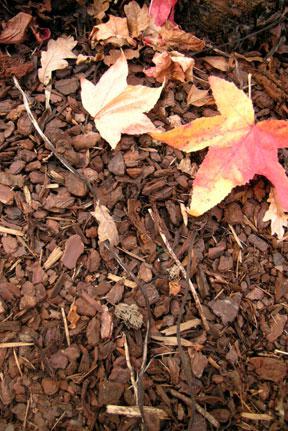An American US-Based Seed Company
| Strain Reviews | Buy Seeds | View Strains |
Organic Composting for Cannabis Plants |
||
Organic matter: what is it?
Quick facts 'Organic' in horticulture often refers to the practice of organic gardening which relies on materials derived from living things; materials that do not derive from living sources are not allowed - chemical fertilisers, for example. Although they have special importance in organic gardening, the use of organic matter and its importance applies to all gardens and soils. The organic matter content of most soils is fairly meagre and benefits from being enriched by the gardener. To achieve this manures, composts (garden and green waste) and other materials are added to the soil. These materials are sometimes, and helpfully, called bulky organic matter. They may also be referred to as 'soil improver' or 'soil conditioner'. The term 'organic matter' is used for both organic matter in the soil (better called soil organic matter), and the many manures, composts (garden and green waste) and other organic materials added to the soil to increase the organic matter content. All organic matter derives from living things, mainly plants but also animal origin. Some materials are best rotted or composted before use in order to have a favourable carbon:nitrogen ratio. Fertilizers are materials that contain more concentrated nutrients than composts or manures and may be chemical or organic. Organic fertilisers are derived from living things such as abattoir wastes, agricultural wastes, fish processing wastes, seaweed amongst others. Their nutrient content is usually not quite as high as chemical fertilisers and being concentrated not enough is added to significantly affect the soil organic matter status. They usually release their nutrient content more slowly than chemical fertilisers as they have to rot before the nutrients become available to plants. Slow release of nutrients is also a characteristic of manures, composts and other bulky organic matter and is a desirable horticultural feature that leads to healthier and higher quality plant growth. For notes on using organic matter in the garden, see our advice page. Examples of organic matter Animal manures: faeces, urine and bedding from farms and stables, that may be rotted or unrotted Animal slurries: liquid farm manures usually too objectionable to be used in gardens but widely used by farmers
Polo manure and straw
Garden compost
Leaf compost being made in garden sacks
Composted bark
Bark mulch
Fresh wood chip
'Composted manure' is often offered, usually baled or bagged, and this manure has not just been stacked but it has been turned or mixed, wetted in dry weather, resulting in a very uniform relatively hygienic product that is usually more expensive that manure from the farm. Compost (not to be confused with 'potting compost') or green waste is organic waste material from gardens or waste collection services that has been stacked, in a garden situation ideally in a suitable compost bin, turned as required and allowed to rot. Garden compost is often very variable in texture, but it is still a good soil improver even when lumpier than expected. Unfortunately the term 'compost' is commonly used to mean the material used to fill pots, seed trays and containers. Both compost and manure are too rich and too poorly drained to make good potting or growing media. Potting 'composts' also are an expensive and not especially effective way of improving soil. Problems Organic matter can be very polluting. It is good garden practice to cover organic matter to exclude rain until it is used. Organic matter can seep nutrient rich liquid. This liquid 'run-off' and it should not be allowed to enter drains, ditches, streams or other surface water. Seek advice before using novel materials such as dredgings from lakes or composted industrials wastes as these can potentially contaminate the soil with unwanted chemicals. |
||
| Marijuana strains have been used to alleviate stress, depression, migraines, joint pains, insomnia and numerous other maladies. | ||
WANT MORE Strains in Stock
Download our full list of Holi Moli Genetics
Are Marijuana Seeds Legal to Own or sell?
DEA Says YES according to emails from the DEA, marijuana seeds have no THC content so the schedule 1 drug laws would not apply to marijuana seeds.
Where can I buy seeds?
HoliMoli Seed bank provides great value, fresh high-quality seeds. We have the best Landrace strains, Feminized strains, fast strains, CBD or Autoflowering strains, Whether you call them weed seeds, hemp seeds or beans. Get Them TODAY









